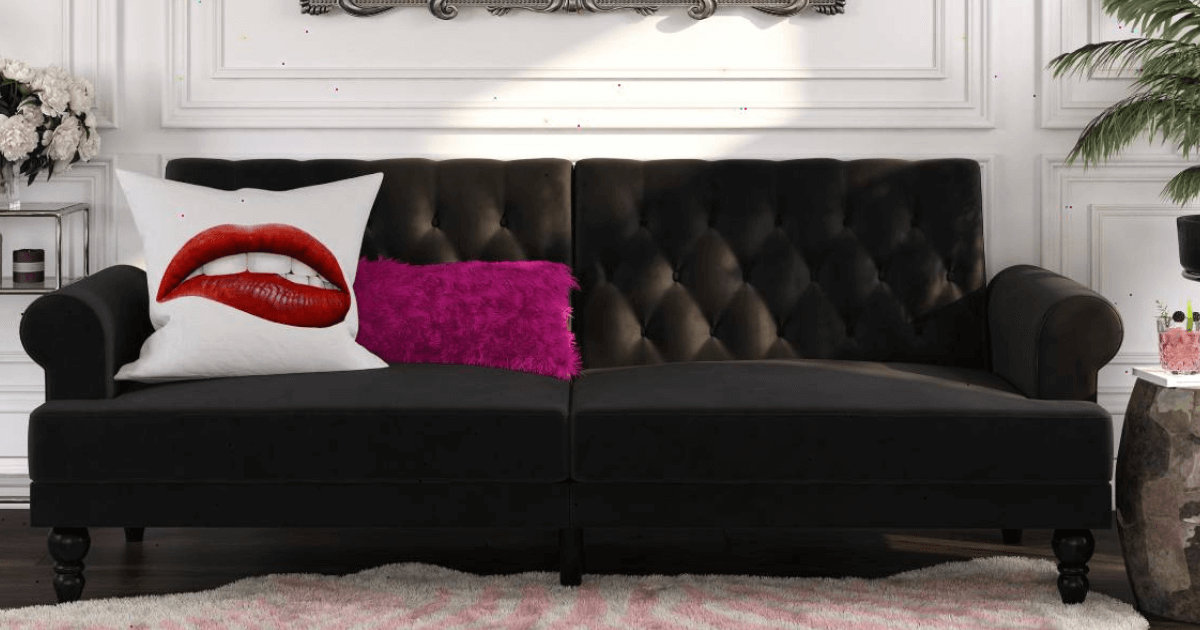Excess Furniture Inventory Eases, But Caution Remains

Rays of optimism emerged at the recent High Point Furniture Market in North Carolina as logistics issues ease and influencers make further inroads in licensing.
For the most part, vendors said that excess inventory began to clear in August and should be sold through by the end of 2022, reporting that retail buyers are now placing for spring products. Looking forward, many furniture and rug suppliers are deploying licensed brands to spur business.
For example, Dorel Home is readying a Paris Hilton x Novogratz (PH by The Novogratz) collection, the latter part of its licensing deal with interior designers Robert and Cortney Novogratz. The 10-piece line, which features upholstered beds, dressers, couches and futons, is in addition to Dorel’s licensing agreements for the Queer Eye, Mr. Kate, and CosmoLiving brands. Nicole Curtis, host of HGTV’s Rehab Addict series, paired with rug supplier Nourison for a five-piece collection available in eight styles (57 Grand by Nicole Curtis), while Orian Rugs unveiled a licensed collection with Instagram influencer Sara McDaniel (Simply Southern Cottage) that’s available in 13 styles and five sizes.
These product plans came as a recent survey of 1,500 adults showed that those most likely shopping for home furnishings were consumers working from home, led by parents, Gen Z, and Millennials. Nearly half of respondents (41%) reported they plan to stick with familiar brands.
“The retailers still have a lot of inventory on hand, which has impacted order rates, but business is still decent, so they are moving this inventory,” said Craftmaster CEO Roy Calcagne. “They are optimistic about having new merchandise on their floors and not as concerned with lead times anymore.”
Yet the optimism was met with caution by some suppliers, many of whom struggled for parts of this year with excess inventory and a lack of retail orders before the market began to clear. Dorel Home’s second-quarter inventory increased by $80 million as revenue declined 4.4%.
“For at least nine months a lack of inventory was hampering our business due to shipping issues, but it all cleared up in the second quarter and we had a massive flood of goods to our warehouses,” said Dorel CEO Martin Schwartz. “Some of these matters have eased to the extent that goods are available, but at a time when consumer spending habits are changing dramatically.”
In addition to ongoing concerns about inflation, furniture purchasers—like consumers in other categories—are also weighing environmental concerns when making buying decisions.
Questions about sustainability in the category continue to grow in response to so-called fast furniture, which, similar to fast fashion, is mass-produced and relatively inexpensive, making it easy to obtain and then abandon. Fast furniture saw significant growth during the pandemic as consumers working from home purchased piles of furniture. In the U.S. alone, sales of desks, chairs, and patio products jumped by more than $4 billion from 2019 to 2021.
To allay these concerns, some furniture suppliers are using recycled materials in their products. Outdoor furniture supplier Polywood introduced the 11-piece Martha Stewart by Polywood collection, which ranged from end ($249) and coffee ($449) tables to a five-piece set with a fire pit table ($4,795). The collection was produced using recycled polyethene plastic.
Crate & Barrel, meanwhile, has a “recycled furniture” section of its website that features Polywood products alongside a metal bed frame made from recycled train tracks. More than 30% of consumers surveyed said they were willing to pay more for sustainably sourced furnishings.
“I relate to fast furniture like I do to fast food,” said Deana McDonagh, professor of industrial design at the University of Illinois, Urbana-Champaign. “It’s empty of culture, and it’s not carrying any history with it.”




